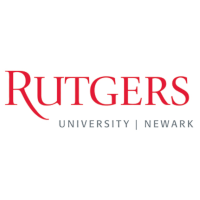
14 Feb PostDoc – Combining Predictive Computational Modeling with Human Neuroimaging
Postdoctoral training in combining human neuroimaging with predictive computational modeling focusing on brain connectivity and cognition
We are looking for a highly motivated and talented scientist to join the Cole Neurocognition Lab (http://www.colelab.org) as a postdoctoral researcher. We are developing and applying exciting new approaches to understanding human brain organization and dynamics. These continuously evolving approaches are then applied to understand the neural basis of cognition, psychiatric diseases, and aging/development. Special emphasis is placed on highly flexible cognition, such as cognitive control, learning, reasoning/decision-making, and general intelligence. Computational expertise, such as with machine learning, computational neuroscience, control theory, and/or software engineering are especially desirable. Possible training in neuroimaging analysis include fMRI, EEG/MEG, tCS, TMS, and fusion approaches across modalities using computational models. Additional training is possible in computational neuroscience with neural mass models and deep learning models (artificial general intelligence and data-driven discovery of neural information transformations).
The positions will be at Rutgers University in Newark, NJ (13 miles from New York City) and located in a recently renovated laboratory space in the Center for Molecular and Behavioral Neuroscience (CMBN), in the same building as the Rutgers University Brain Imaging Center. The position includes competitive salary and Rutgers University’s excellent benefits package. The Cole Neurocognition Lab is a fun, friendly, and hard-working environment where one can interact with and learn from experts in cognitive neuroscience, cognitive psychology, network science, and computational neuroscience, in addition to other related fields. Interactions with colleagues in other labs (and at nearby universities (NYU, NJIT, Penn, Princeton, Temple, Columbia) take the form of collaborations, seminars, social events, and regular meetings of the Integrative Neuroscience Discussion Group and the Newark Brain Connectivity Group.
Preferred attributes of candidates:
- Strong computer programming skills;
- Strong statistical analysis skills;
- Excellent writing (and general communication) skills;
- A passion for learning and making discoveries in neuroscience (and related fields);
- Expertise (a PhD) in neuroscience, engineering, psychology, data science, and/or computer science research (or related field)
For more information on the lab’s research visit http://www.colelab.org/
Start date is flexible, but is anticipated to be between January 2021 and September 2021. Applicants will be reviewed on an on-going basis until the position is filled. Email Michael Cole (mwcole@mwcole.net) if you are interested in the position.
Some relevant papers (more at http://www.colelab.org/#publications):
- Ito T, Yang GB, Laurent P, Schultz DH, Cole MW (Preprint). “Constructing neural network models from brain data reveals representational transformation underlying adaptive behavior”. bioRxiv. https://doi.org/10.1101/2020.12.24.424353
- Ito T, Hearne L, Mill R, Cocuzza C, Cole MW (2019). “Discovering the Computational Relevance of Brain Network Organization”. Trends in Cognitive Sciences. http://www.colelab.org/pubs/2019_ItoHearne_TiCS.pdf
- Cole M.W., Repovs G., Anticevic A. (2014). “The frontoparietal control system: A central role in mental health”. The Neuroscientist, 20(6), 652–664. doi:10.1177/1073858414525995 http://colelab.rutgers.edu/pubs/Cole2014_TheNeuroscientist.pdf
- Cole M.W., Laurent P., Stocco A. (2013). “Rapid instructed task learning: A new window into the human brain’s unique capacity for flexible cognitive control”. Cognitive, Affective, & Behavioral Neuroscience. 13(1): 1-22; doi:10.3758/s13415-012-0125-7
http://colelab.rutgers.edu/pubs/2013_Cole_CABN.pdf - Cole MW, Ito T, Bassett DS, Schultz DH (2016). “Activity flow over resting-state networks shapes cognitive task activations”. Nature Neuroscience. doi:10.1038/nn.4406 http://rdcu.be/kOJq
- Reid, Andrew T., Drew B. Headley, Ravi D. Mill, Ruben Sanchez-Romero, Lucina Q. Uddin, Daniele Marinazzo, Daniel J. Lurie, Valdes-Sosa PA, Hanson SJ, Biswal BB, Calhoun V, Poldrack RA, Cole MW (2019). “Advancing Functional Connectivity Research from Association to Causation.” Nature Neuroscience 22 (11): 1751-60. doi:10.1038/s41593-019-0510-4. http://www.colelab.org/pubs/Reid2019_NatureNeuro.pdf


Sorry, the comment form is closed at this time.